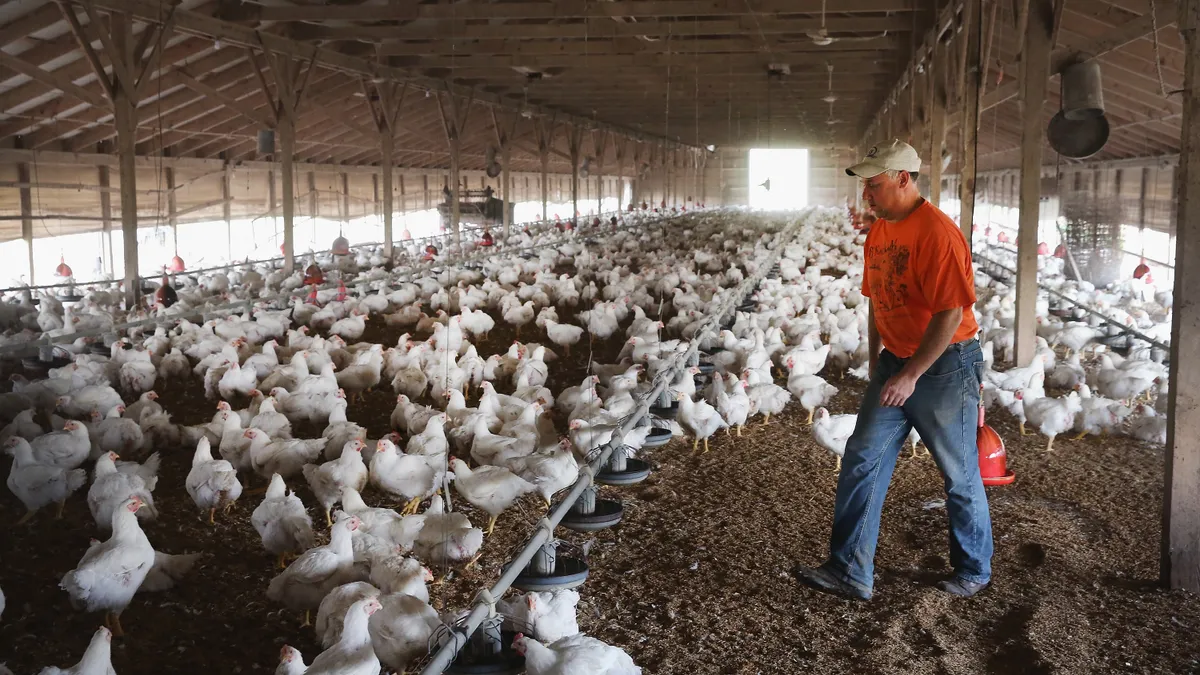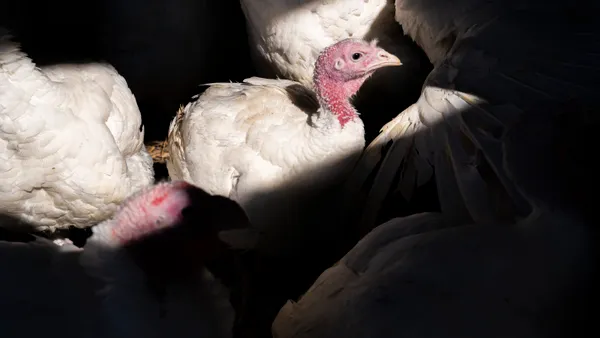Dive Brief:
- Koch Foods Inc. agreed to no longer charge a termination penalty to chicken growers who switch processors, settling claims with the U.S. Department of Justice that the fees prevented suppliers from working with rivals.
- The Justice Department said last week that a proposed consent decree would prohibit the nation's fifth largest poultry processor from penalizing growers who switch processors and require Koch Foods to return certain fees and penalties already assessed on farmers.
- The agreement, which needs court approval, follows an anticompetitive lawsuit filed by the DOJ under the Sherman Act and Packers and Stockyards Act. The suit claimed Koch's termination fees often amounted to more than half of most growers’ total annual take-home income.
Dive Insight:
Enforcement against Koch Foods was announced a day after the Biden administration unveiled plans to tackle anticompetitive behavior in the poultry industry, in part by requiring processors to better inform their suppliers of contract terms.
Processors often require farmers to invest heavily in their operations as part of a contract, which makes it difficult to transition to working with competitors, who may also require capital investments. The Department of Justice said Koch used the threat of termination penalties to discourage growers from moving to competitors, and that the processor also "sued or threatened to sue more than a dozen family farmers who tried to switch."
"Koch claims that the exit penalty was meant to compensate Koch Foods for the real impact growers leaving has on Koch," the suit reads. "But that is just another way of saying that, without the exit penalty, Koch would have to pay farmers competitive rates to keep them from switching to one of Koch’s competitors."
Koch implemented the termination penalty in 2014, and the fee ranges depending on the size of the farm. The Justice Department noted fees of $24,000 to $56,000, though said one family farm was charged hundreds of thousands of dollars.
As part of the agreement, Koch will refrain from including termination penalties in grower contracts for the next seven years. It will also be required to meet certain reporting and compliance obligations throughout that time.
The suit against Koch is the second recent enforcement action against a large processor under the Packers and Stockyards Act. A district court approved a consent decree in June resolving claims that Wayne-Sanderson Farms’ use of a tournament payment system violated the anti-competitive law.











